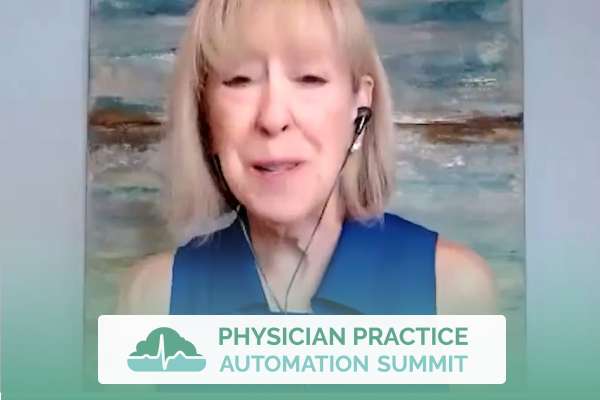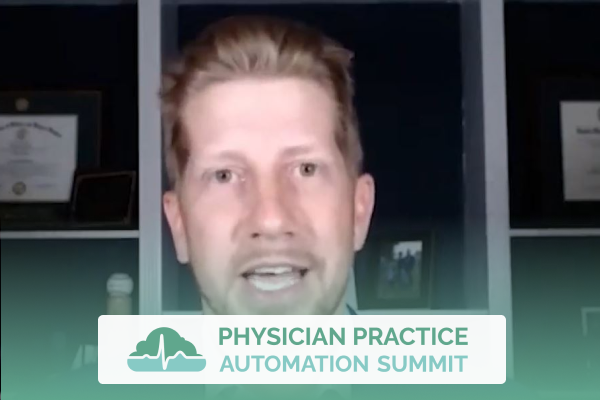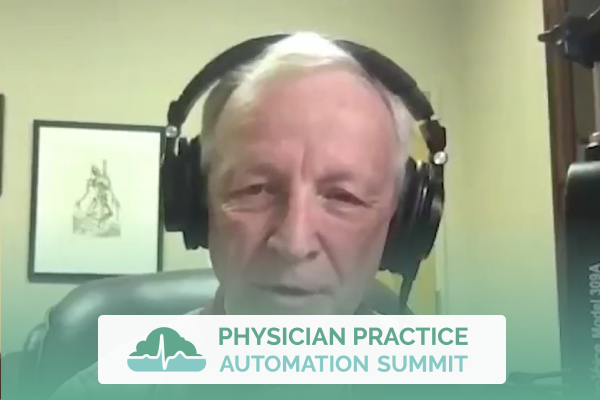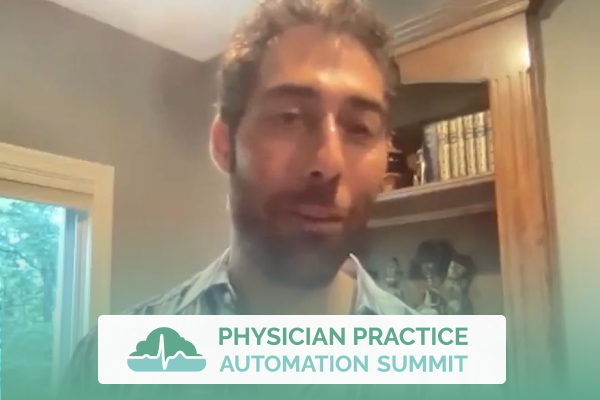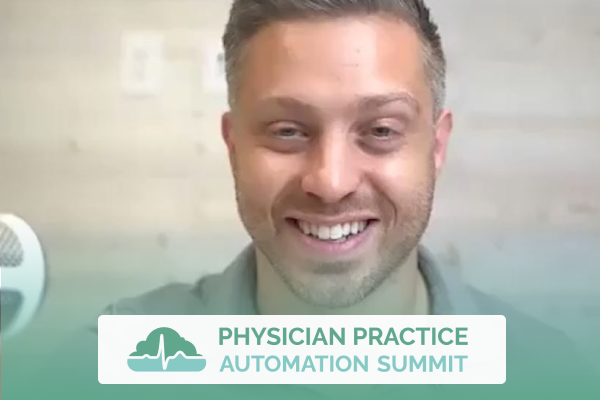Join the discussion below
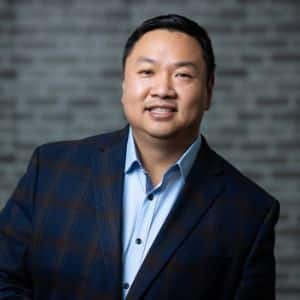
Dr. Ruan is the Founder and CEO of Texas Center for Lifestyle Medicine. He devotes his career in practicing and building systems that allow for efficient delivery of healthcare. He is a board certified internal medicine physician but also have advised with companies to improve their workflow, company culture, marketing,... Read More
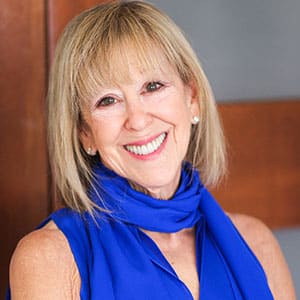
Dr. Sandra Scheinbaum trains people to become Functional Medicine health coaches and helps practitioners find coaches for their practices because she believes that growing the health coaching profession will be the solution to combating chronic disease and lowering healthcare costs. As founder and CEO of the Functional Medicine Coaching Academy,... Read More
Cheng-Huai Ruan, M.D.
One. Hi, everyone. I have Dr. Sandra Scheinbaum today, and she is a wonderful person, and she’s really guided me over the years on several different things, but has been such a great mentor for me. And I’m really excited to have her on, to talk about something that’s really special, which is health coaching, which is now the actual thing within the United States. And it’s recognized by CMS. So, Sandy is a fantastic human being. She has a Ph.D. and she is an integrative psychiatrist or psychologist, I should say, and is the founder and CEO of something called FMCA, which is the Functional Medicine and Coaching Academy. And so this academy actually trains health coaches. And if you don’t know what a health coach is, there’s a reason why we’re having an on the physician automation summit, because there’s a lot of automation that you can actually have through health coaching that is extremely valuable for patients. And this is a system that I’ve run for the last four years. So, Sandy, welcome to the show. Appreciate you coming on.
Dr. Sandra Scheinbaum
Thank you so much. It is a pleasure to be here.
Cheng-Huai Ruan, M.D.
Thanks. And we met a few years ago through the functional medicine in one of the training courses. And so, that was really the first time I even heard of what a health coach was and it kind of boggled my mind a little bit. And so, what I’d like for you to do is just kind of introduce to people, what exactly is a health coach and what are the roles?
Dr. Sandra Scheinbaum
Sure. So, to really look at what a coach does, think about an actual stage coach. The stage coach takes somebody the when it was a horse and buggy, the coach would come and pick you up, take you from where you were to where you wanted to be. Essentially, that’s what a health coach does. A health coach takes you to where you want to be. So, first and foremost, coaching is what we call client-centered. And I wanna say the onset that to differentiate between the coach, a coach is not a legal licensed provider in FID state, government body. And so, they are not somebody who has patients. They have clients to differentiate from a clinician who would have patients. And what the coach does is they act as the behavior change specialists, they help people change.
And it’s really important to, first and foremost, recognize what that individual wants. So, the coach does not go in and superimpose what they think is going to be best for a given individual. They honor that person. And the whole field of health and wellness coaching actually comes from life coaching, and life coaching evolved from humanistic psychotherapy. So, that was way back in the 70s. I was training as a clinical psychologist at that time and I trained it humanistic psychotherapy. And there was this notion of unconditional positive regard. And what that means is that the person that you are working with, you are holding them in unconditional positive regard. In other words, if they don’t want to follow your plan, if they are going off in a different direction, if they have beliefs that don’t resonate with your beliefs, you are right there with them.
You are listening, they feel heard. And the skills of a coach would be to help them make the right choices, to decide for themselves to change, to take a healthier path. And that comes about when they have that aha moment, like yeah, what I’ve been doing isn’t working. So, maybe I need to start moving more. Maybe I need to go to bed earlier, but it’s not the coach who’s the expert who is developing that plan to say, “You need to get to bed earlier.” It’s that client coming to that decision. And that is really the magic of the coaching process, where they are listening and they are really accepting that person wherever they are so that they can make that decision to change.
Cheng-Huai Ruan, M.D.
So, one thing that you said is really empowering the patients to do what is it necessary to do. But I’m curious on how a health coach is different from, let’s say like what, a nutritional coach, or nutritionists can do. Because I think like for most doctors, like if someone has diabetes, they’re much likely to refer to a dietician, right? Someone has obesity, either dietician or nutritionist, and then there are different classes within dietetics as well. So, as I understand it, health coaching is not just about diet, what do you see that fitting in? And how do you compare amongst these services?
Dr. Sandra Scheinbaum
Yes. So, a coach is not a dietician. They are not a nutrition specialist unless they happen to have had that training. Many coaches who come, who study with us at FMCA are already dieticians. They are already nutrition specialists. So in that case, they may wear two hats. And that’s a totally separate way of working as a coach. And for somebody who is a coach, they are not a registered dietician or they are not licensed in nutrition, they are not acting as the one who’s making the recommendations or analyzing. They’re not going to look at a lab profile and look for nutritional deficiencies and then come up with a treatment plan that may say, “Here’s your meal plan. “Here’s the supplements you need to be taking.” If they are doing that, they are functioning outside of their scope of practice.
So, what does the health coach do? Their role is to be the support. So, they are relying on the experts, on the doctor, on the dietician to be that expert, to develop that treatment plan. In this case, if it’s nutrition, a food plan, a meal plan, a supplement plan, and then they take that and then they engage with the patient to see, “Okay, is this, do they understand it first?” ‘Cause they can act as an educator, if they’re confused about, why do I need the supplement? What is it for? They also can be the one who asks that question or profound questions about what is it like for them to receive this? Or where would they like to start? Is this doable for them? Are there obstacles that they can foresee?
And then they work with that patient to look at making it fit for them and holding them accountable. And then they are also the communicator back to that dietician, that doctor to say, “Oh, Mrs. Smith. “She’s not following up on these supplements. “She told me that she can’t afford them. “And so she’s not following up.” And we know there’s a lot of documentation that people will tell the coach things that they will not tell their doctor, for example, or that nutritionist, because they’ll were afraid there’ll be judged, but they see the coach as closer to their peer. And so, they’ve developed such a rapport with their coach that they will often disclose things like not following through, I didn’t renew my prescription. I’m not following that meal plan. And then the coach could go back and get, of course, with permission from the patient, communicate that, and then they could go to plan B.
Cheng-Huai Ruan, M.D.
Yeah. So, that is a great way to put it. So, I think that what it sounds like is, so in the hospital system, back when I did hospital medicine, there’s a assigned patient advocate per medical surgical floor. And the patient advocate’s job is to really advocate for the patients and the family, what they really need within the hospital stay. And then there’s a program to even develop a post-discharge patient advocacy program to make sure they don’t bounce back to the hospital, they follow-up with their primary cares and stuff like that, right? And so, I think if you have that as sort of an outpatient setting, that could be very powerful.
‘Cause right now, I mean, guess who’s doing it? It’s the doctors, it is the medical assistants. It’s the front desk, is back office, sometimes the billers. And it depends on whoever’s on the phone with that patient. And what it creates, I think is what’s mainly wrong with medicine these days is just a really broken level of communication because I do think that most patients really want to do well, but sometimes things get in the way. So, our health coaches, for example, they see things that we do not. Death of a spouse, death of a family member, family member being ill, the patients being ill themselves. So, they pick up so many different things that is truly valuable to the practice of medicine. I have someone else who is a friend of mine, who’s a health coach for orthopedic practice. So, it’s basically like a patient advocate and they go out to make sure that, hey, your post-op day three on your shoulder surgery, how are you feeling today? Hang in there, and making sure that they’re okay with their pain levels and stuff like that.
So, there’s a quality that’s associated with it. And then I have another example really is where one of my health coaches is a mind body medicine practitioner is that, she holds sessions with people, not really in counseling, but just kind of supporting them through the tough times and giving them tools, meditative practices and stuff like that that really allow them to form that resilience. What’s great about it is it makes us look great. It makes the practice look great. It makes the practitioners within the practice look great. And we get a lot of five star reviews just because of our health coaching. So, I definitely see it’s there. So, earlier, you talked about how the health coaches are not the providers, if you will, they’re not the ones providing the actual care in terms of a legal definition, right? So, how have you seen health coaches interact with either physicians or the staff of other practices so that patients have good outcomes? Like what are some examples you can talk about?
Dr. Sandra Scheinbaum
Sure. So, one example would be, if there are things that are going on with that patient, they’re not disclosing them to their medical provider or they’re making decisions to, let’s say they’re have hypertension, they’re making a decision to go off their medication. So, coach would alert the practice that that is happening. They also are very focused on the social determinants of health. And these are, again, the things that in a rushed visit with a practitioner, it might not come out that they are living in an unsafe environment, for example. Maybe they cannot sleep because there’s gunshots going out all night outside of their building, or they can’t go out for a walk because maybe there is no sidewalk, maybe it’s dangerous. Maybe they don’t have access to the kind of food that is being recommended. And sometimes well-meaning practitioners will make recommendations. And it’s really out of reach.
I had somebody, I was monitoring a clubhouse room, which is a wonderful, the social platform that you and I have been involved with. And somebody came up from the audience and she had worked with a functional medicine doctor. And she said, well, she got a whole list of supplements, probiotics, for example. And she couldn’t afford it. She had the switch, she was no longer working. And so, she was really struggling. And so, this is an area often where people will be reticent to bring this up with their practitioner, or they won’t seek care because they can’t afford it. And the coach can help them.
One of the things we talked about with this individual was seeing you’re having access to a group. And I know we will talk about the power of group medical visits and how coaches can facilitate that. So, that is one way where they can communicate back to the practice. The other is that they can really lighten the load for the clinician and staff because there tends to be with somebody has a complex chronic condition, is a high level of service that is necessary. A lot of follow-up, phone calls and consultations. They have a lot of questions and the health coach can take over a lot of that. They could provide the education and what’s a very efficient, powerful models, they could do it in groups rather than giving the same talk about blood sugar control or what you should or shouldn’t be having for breakfast.
To one at a time, they could get a group of people who are suffering from type 2 diabetes, they get them together and they could talk about food, or if they’re going on an elimination diet or whatever it might be, they can run these groups, providing the educational component, for example, or whatever it might be that might be stress and running a breathing technique groups, meditation groups, and many coaches are, I would say most that I’ve encountered and that we teach, we teach my body medicine techniques, for example, mindfulness practices.
Cheng-Huai Ruan, M.D.
No, that’s great. Yeah, you’re absolutely right. A lot of these things do work well in groups. The other thing that we noticed is that it’s not just about supplements or medication compliance, is actually huge. And I can’t tell you how many times our health coaches people like going off of specific medicines or they’re in a coaching session and the patient breaks down and you find out that they went off their antidepressant cold Turkey, which you can’t do without feeling some side effects from it. So, we’ve caught a lot of those as well. And I think that it really caters to the patients and advocates for the patients, for us to know exactly what’s going on, as well as the social determines of health. If they can’t afford a medication or a supplement, if can’t afford a food item that was recommended and stuff like that, it doesn’t do any good to recommend it.
And also, I think from the subspecialty fuel, like surgical sub-specialties, I think that one of the ways that surgeons assess with insurance companies claims and stuff like that are outcomes. And so, the outcomes data, which is really hard to get, unless you have someone going out to do it, or unless you have some sort of automated system to do this. And I think that health coaches are really perfect for the PRO data, which is patient reported outcome data. And a lot of times we use that on to fight with insurance companies for reimbursement on specific services. And once we have that data and we show the insurance company that this is the outcome that we want to achieve, able to approve it, we’re able to get that going across.
I think the coaches have multiple benefits from that. But then, you just talked about a group of group setting. So, doctors aren’t trained to practice in a group setting unless they train as a psychiatrist. And so, from most of the MDs and DOs kind of listening to this, the physicians, the group setting, it’s a bit of a black box. So, can you sort of tell us a little more about some of the structures of what you see health coaches doing in groups and how the heck do you get a patient to agree to show up to a group session? How does that work?
Dr. Sandra Scheinbaum
Well, this is one of my favorite topics that I’m passionate about. And I actually have a long, long history with groups. It started, I was a school teacher before I was a psychologist, before I started Functional Medicine Coaching Academy. And as a teacher, I was in special education, and this was way back in the early 70s. So, we’re talking a long time ago. And I had children in my classroom. At that time, we called them kids with behavior disorders or learning disabilities. And so, I pulled together the parents and got together. They came into the classroom, they sat around in the tiny chairs and we made it work. And they talked about what it was like at home. And then, so they were starting to share their experiences.
They started to learn from one another and they started to feel like I’m not alone. Oh, you’re having that issue with your child as well. I was embarrassed to even talk about it, but I see that it’s commonplace. Well, I started then doing those groups for teachers. Teachers to prevent burnout. And they would come together as a group. And it was part education about breathing techniques or about ways to release that stress. And then it was partially, I’m not alone. We’re going to get together. And just the communication amongst each other, sharing, what I love about groups for the participant. First and foremost, it’s an opportunity for them to be a giver. They can share and they can be of service to somebody else. And that is one of the main reasons why groups have this powerful healing potential. And we like to say, the community is the medicine. And then it’s a social proof idea that, “Oh, I’m not alone.” You have this too.
So, I’m not crazy. I’m not weird. And I feel safe in this space to talk about my experiences. And so, they also have that social proof that, well, if he could make that change, if he could start eating more vegetables as well, I guess I could do it too. And so there’s that, there’s that community of, they become a true community, supporting one another. And many people think that they have to be an extrovert they’re shy of public speaking. And actually, and Dr. Jeffrey Geller says this, the introverts do better because they’re good listeners. And he says, he started groups. This is through the Center for Integrative, I think it’s called the Center for Group Visits. It’s in Lawrence, Massachusetts. And he started groups to treat loneliness. And that’s one of the reasons.
So I went on, I did a lot of stress management, relaxation groups. And then now I’m training coaches to run groups. And they’re the facilitator. So, groups are different. You’re not a teacher. You don’t have a lesson plan. You don’t have an agenda. Again, it’s client-centered. But now your client is not only every individual. So, you have to honor every different person and they’re diverse, but you also sense the group, the group has a personality. And what does the group want? And anyone who has ever taught may realize that, well, one class that you taught responds a certain way and then your next period class, well, they are totally different. And so, the group itself takes out a personality. And as a coach, you recognize that. And then you recognize all of the nuances. Like somebody who’s talking a lot, somebody who never says anything, you want to be very mindful of diverse backgrounds, cultural differences that may be coming into play. So, and then there’s the issue of confidentiality, which is the assurance that you are providing by HIPAA. But each group member is not legally bound. So, you set the group, the rules of engagement at the onset. But it is so, so powerful. And I highly, highly recommend groups. And a coach who’s trained in how to facilitate group visits can be the guide.
Cheng-Huai Ruan, M.D.
So yeah, so people think this is a foreign concept. This is actually talked about in the American Academy of Family Practice. If you want me to just kind of Google search this on group visits, I mean, I think that article came on 1993 or ’94 or so. A lot of this has been around for a while. This is nothing new and innovative, but I think it’s the first time where we’re probably seeing more of a need for something like this, especially in the pandemic era. And I would love to say post pandemic era, but I don’t know when that’s gonna be. So, the pandemic, it’s all that way. And so, I think that within the health coaches then within FMCA, so they’re actually trained as part of the curriculum to facilitate the group.
Dr. Sandra Scheinbaum
Yes.
Cheng-Huai Ruan, M.D.
So…
Dr. Sandra Scheinbaum
And…
Cheng-Huai Ruan, M.D.
Go on.
Dr. Sandra Scheinbaum
This could be also, I wanna point out that this does not have to be live. It can be remote. And what we’re finding is that Zoom is a remarkably effective platform. It’s HIPAA… You get the HIPPA compliant platform. And the people like it. In fact, they like it more than a lot. They don’t have to be in traffic. They don’t have to disrupt their day and take time out. They can do this from home. And there’s an intimacy. We have found that they like to share, “Oh, here’s pictures of my grandkids behind us,” or, “Here I’m in my kitchen.” Sometimes there’s activities. You can go around that. Like let’s all clean out our pantry at the same time that we’re doing this group visit. So, there’s a lot, a lot of potential for that, that you can be doing this virtual. And then with breakout rooms, you can have your providers or the coaches doing the facilitation, the education. Then one by one, people can be taken into those breakout rooms for their individual session to be reimbursed.
Cheng-Huai Ruan, M.D.
So, for those of you who are tryna figure out how insurance and all this stuff works, they’ll be covered on another interview and pretty much, very much in depth actually. And so, but for this one, we’re gonna continue talking about coaches first. Okay. So, now we know that the coaches can be trained or are trained as, could be group facilitators to run these different things. So, one of my questions earlier is like, how do you funnel patients into these groups? Because I feel like it’s all in the cell, right. I think, me as a doctor, I’m saying, hey, I want you to go to this group and that’s it. And no one’s gonna go. But how can a physician say or communicate a value add for what the groups are supposed to be?
Dr. Sandra Scheinbaum
Yeah, so it really all depends on how the physician, how you communicate the value of the group at the beginning. And often, it is during a one-on-one consult where you talk about the value and perhaps share a story. And certainly for confidentiality, it wouldn’t be, real, real person, but you can have a story of how somebody made remarkable changes because of the group. So, for the first person to convince the value of the group is you, the clinician, that this experience is actually more powerful than a one-on-one consultation. So, let’s say a coach, a health coach working one-on-one with a client versus seeing that person in a group.
Now you’ve increased exponentially the opportunity for that person to make progress towards their health goals, because they are in this community of others who are often like them, who are supporting. Now you have multiple cheerleaders, not just the coaches, your ally and cheerleader, but now you have the entire group. And if you think about groups that you may have some experience with, perhaps it was Weight Watchers or AA, or all of that, those histories of we have of support groups where people really got better because of the group support. So, groups are part of a support group.
They are part educational process. So, it’s part of like a being in a classroom. It is the engagement though, where you can give back, people can provide service to you. So, that is the power of the group. So, basically you document it, and you tell a story. People learn by stories. You can talk about somebody who was in the group and made tremendous progress. For many, many years when I was the psychologist, I facilitated a group for oncologists. There’s a large oncology practice. I took over their staff kitchen every Friday at noon. We cleared out the drug wraps, pizza boxes leftover. We had, it was an ongoing group. It lasted for two years. People came and went, and the doctor sold it because they would come in and participate in the group. But they would particularly tell about somebody who was in the group who was able to reduce their medication, who was able to start walking again and made remarkable progress. And so, it was those kinds of real life stories that sold people.
Cheng-Huai Ruan, M.D.
And so, I think that’s something that’s really tremendous to really reveal because when we started doing these group sessions, actually started with a lot of the cancer and diabetes patients. What we’re noticing is that not only are the patients more engaging in their improvements, their outcomes were actually better. The people who have diabetes, the A1C is actually got a lot better, a lot quicker because we run a program at Texas Center for Lifestyle Medicine, DSMs, which is diabetes self-management program through the ADA. And so, we have to get these numbers and outcomes to see how people do. And so, as part of the accreditation, we learn how to get those outcome data and then apply to across the board for the cancer patients and autoimmune and gut health patients, chronic pain.
That’s probably one of our most powerful groups. And what we’ve noticed is that the stories that come out of there, it’s just very mindblowing and a lot of the practitioners and providers on their break, they just wanna be sort of part of that energy because it’s always positive. It’s always positive coming out of it. And it’s very cathartic in a really dramatically decrease all of our burnouts, going a thousand miles an hour. And not only that, we made it part of our core values and core business to have coaching be the core elements and have us be the actual guides that support the coaching on the physician side. So, I see that as being a very valuable component. So, we do have a combination of one-on-one and group coaching as well. And so, but can you sort of run through some of the curriculum that the health coaches are taught and then how should we execute that in the outpatient setting using what the coach has learned in the curriculum?
Dr. Sandra Scheinbaum
Sure. So at FMCA, we have six branches. The first is functional medicine ’cause we are a collaboration, a partnership with the Institute for Functional Medicine. So, they’re training, IFM is training the doctors. We are training health coaches. And so, we’re educating on functional medicine principles. We are not focusing on a heavy dive into cellular biology, for example, but we are focusing everything at the level of how would you explain this to a patient? How do you take these concepts and really the able to dial them down so that when somebody says, “I don’t understand why my doctor said this,” the coach could make that come to life and educate in a way that they really understand. The second branch is nutrition, functional nutrition.
So, we are not going to have them emerge as dieticians, for example, but these are need to know concepts. And so, if they are speaking with a doctor, with a nutritionist, they need to be aware. Just ’cause when I was a clinical psychologist, I could not write a prescription for a medication, but I took psychopharmacology. In fact, it was a huge part of our state licensing exam to know pharmacology just because we had to have that education to recognize when a patient might be over-medicated, misusing medication, communicate, we needed familiarity with each of those medications.
And so, then the third branch was one that’s near and dear to my heart ’cause it was what I was an expert in, and that is positive psychology. That’s the study of what’s right with people not what’s wrong with them. And that is how people change. They change through their character strengths, the pillars of wellbeing, what makes a life worth living? How do people thrive? And so, we do a real deep dive into positive psychology integrated with those other two branches. And then we have another branch, which is the mind body medicine piece. And that is how does your mind influence your body? What about this parasympathetic response? How could you guide somebody to be more mindful moment by moment, to do some relaxation, whatever type might fit for them, for example? And then the fifth branch is the art and science of coaching.
That is where you learn to be a listener. You learn how to ask open-ended questions. You learn how to roll with resistance, to create rapport, to really become an ally. And that is in behavior change to set accountable and realistic goals that can be achieved. And then what we’re calling the coach navigator to set up a business. And that means whether you are going out as an entrepreneur, many coaches establish their own business, but also whether you are, when you’re working for a practice, you can be that person often in the practice who can help to elevate the practice, you can bring in added revenue. You could go out and give community talks. You can be a spokesperson for what this practice is about. And so, we have a parallel track in navigating to build your career and put your best foot forward.
Cheng-Huai Ruan, M.D.
That’s pretty comprehensive in all aspects, right? And it’s something I think I wish I got some training within a medical school or residency, but that’s usually not the case with most programs. So, with all the stuff that the health coaches have learned and marrying that to physician offices, sometimes get a little tricky, which is, I guess, why you kind of put out that track with the business. But where I see health coaches going, because I’m biased. We have great health coaches within our practice, that’s a Center for Lifestyle Medicine. I can actually see a pretty good business plan where it could be incorporated into a lot of primary care or other point of entry practitioners like OB GYN and chiropractics and stuff like that.
But I think the biggest, like people missing out on health coaching is surgical. Like I’ve talked about it before. And so, with surgery, the best thing to do is have the best outcomes. If you’re a surgeon, the minute you have a poor outcome, that’s the last thing that you really want to deal with, right? And what we have learned within several of our consumer medical educations, especially with young patients is that from a surgical side, the risk is not necessarily what procedures you do, but how do you communicate that and the expectation that’s set up so that you can provide a lot of value indications to the patients. And I think that’s what the coaches can really come in on the surgical side. And especially in groups too.
If you have a group of people that’s planned for doing certain things and the coaches can come facilitate that and post-op, they can follow up and create that sort of guidance to know what to do, I think that will dramatically influence the outcome of the surgery and make the physicians shine as well. So, that’s something I definitely want to highlight. I think it’s a great missed opportunity for a lot of surgeons of product pain management to kind of dive into. And so, I’m curious about, and this is something that I’ve always been curious about, I don’t have an answer to this. And I’m gonna ask you, is that when you have a coach that is either reaching out to the patient, has a session with a patient, establishes that rapport, and what we see is that generally, whenever there’s a group session that’s available, like that patient’s entire family comes into that group, right?
And so from the clinician side, there’s a whole legal aspect that, hey, everyone in the group has to sign a HIPAA agreement and be our patients and make sure that nothing leaves the room. And so, I’m curious to hear how coaches deal with, okay, this is exact same situation. We had a group of 16. Okay. And they were in our, what group is it? Dementia, memory loss group. And out of the group of 16, nine were from one family. And there were actually all patients as well, but really there to support one family member. How does a coach talk within a group knowing that half the group, well, majority of the group is actually with one family and the other ones are sort of more individualized? Is there a dynamic there that we have to kind of cater to?
Dr. Sandra Scheinbaum
I would first and foremost talk, well, first regarding the confidentiality. So, you review that at the onset and often giving very specific examples. Like not to go out and post on Facebook about someone else just talked about in the group. But legally you, as a clinician, they sign the regular HIPAA waivers. But each individual in the group can’t legally be bound to protect somebody else. If somebody discloses something and that person, that someone else in the group goes out and discloses it, everybody who is in the group takes that risk. And so, that’s something that before they enter the group, you first discuss that and give those examples.
What happens in reality is people honor that because they come to see, they’re bonding with one another, and they come to see this as a sacred space. And so, I think that would apply for those people who are within that one family. Each of those are individuals. They have their own wants, desires, preferences, and they’re going to become active participants within the group. And I think we mentioned that the type of groups, so particularly with cognitive decline, I ran groups of people who are care givers. When I had the oncology group, it was common that people would come with a relative. We encouraged it. And I remember one couple, she always came with her husband many times.
They were the , now this is when they were live groups, this was years before COVID. But they needed transportation. And rather than having that person sit out in the waiting room, it was more beneficial. It was therapeutic to have them come in because we know that the stress of caregivers is sky high. So, if a spouse is taking care of someone with a chronic illness, they are exhausted, they are gonna get sick as well. So, it was healing and therapeutic for that person. So, we saw them not just as a tag along, but as a vital important participant in that group. And so, I would suggest that each of those family members would be seen as group participants and the fact that they were family. Oh, that’s just an interesting statistic, but they are all participating as individuals.
Cheng-Huai Ruan, M.D.
Okay. So in reality, which is all see them as individuals, even though they’re supporting a person in their family, right? And then also have them sign the individual releases as well, or the HIPAA confidentiality agreement as well.
Dr. Sandra Scheinbaum
Yeah, exactly. And I would give specific examples about breaches of confidentiality and that those are so that you have everybody go around and they acknowledge that they understand the importance of this as a sacred space and everything that’s here, which is like Las Vegas. What’s here stays here.
Cheng-Huai Ruan, M.D.
Yeah, no, absolutely. And that’s important to understand, because whenever you wanna do groups, especially with coaches, you really wanna make sure that everything’s nice and buttoned up. And especially if there’s other people in the room, and especially sometimes there could be younger, maybe 18, 19 years old in the social media era and just kind of give them examples of what not to do. So, that’s a really good point there. So, what about when there is a patient-coach sort of relationship that’s within a practice? And let’s say that a coach is coaching someone and they explore symptoms with them and there’s new symptoms.
And because of the new symptoms, the coach will then have to talk to the physician or have to talk to some of the medical staff to really address those symptoms so that there’s no sort of delay of care. And we find that within our coaching population, ’cause, especially during coronavirus. My coach was like, “Oh, hey, “this person just said he had a temperature of 101. Can we get this patient booked and stuff like that, which we generally do it was not too much. And so, so from the physician-patient relationship, there is a provider-patient relationship that’s with protect the PHI and all this stuff like that. Are there any nuances of the coach-patient relationship? Like what exactly are the boundaries? Are they same as a physician-patient relationship?
Dr. Sandra Scheinbaum
So, it depends. So, if a coach is, has their own business, so they, let’s say they just hang a shingle, I’m a health coach and I have my clients, they are not covered entities. So, because they are not licensed providers by any state in the United States, they are not legally bound by HIPAA because HIPAA is privacy of medical records. And coaches, because they’re not covered entities, they’re not licensed providers. They don’t keep medical records. They can keep notes. However, both the National Board for Health and Wellness Coaching and Functional Medicine Coaching Academy, we take a strong stance to abide by HIPAA regulations.
Now, that means that if you run a business as a coach, you don’t have to give those people, when they come in the door, they’re not filling out those legal HIPAA forms, but the ethical way to do this is to abide by confidentiality and then your client agreement. You state clearly the nature of the sessions, confidentiality. You may even have a duty to warn when you’re gonna disclose something. And then if they coach, and in this instance, we’re talking about a coach who would be working in your medical practice because they are part of your practice and they might be entering a note in a medical record, then they would be held so that they are abiding by HIPAA, the strict interpretation of that.
Cheng-Huai Ruan, M.D.
Okay. Gotcha. So, that’s a really is the main difference. And I’m glad you guys, FMCA as well as the National Board of Health and Wellness Coaches are really promoting the HIPAA ethics, if you will, even though it’s not a necessary thing to do so. But what we now know is that, in 2021, there’s a new taxonomy within CMS, which is the health coach taxonomy with some health coaches can have their own MPI numbers and actually can be within in network of the insurance and stuff like that. This is brand new. And so, I guess if they have an MPI number, then they’re definitely bound with the HIPAA contracts. Is that true?
Dr. Sandra Scheinbaum
Yes. Yeah.
Cheng-Huai Ruan, M.D.
So, that’s relatively new. I’m gonna cover that on the whole other interview with Margaret More of National Board of Health and Wellness Coaches.
Dr. Sandra Scheinbaum
Love .
Cheng-Huai Ruan, M.D.
Yeah. So, wonderful. And so, we talked about some of the legals and ethics of health coaching. We talked about how the health coaches are trained and we talked about how can they possibly be incorporated into medical practices. Now I wanna talk about you for a second. So, why did you start this, in what? 2015, right? You started this, why did you start this? Why did you make that transition from a psychologist to doing stuff like this?
Dr. Sandra Scheinbaum
Yeah, so, because I had a background originally as an educator, I had spent so many years, when I was a psychologist, I was focusing on mind body medicine. I was very involved in world of biofeedback, did some control studies on biofeedback for attention deficit disorder. But I saw the power of these mind body medicine techniques. And I saw the power that was be on steroids when you took those and you blended them with cognitive behavioral techniques, with positive psychology philosophy. And I started studying functional medicine through the Institute for Functional Medicine. And I always was somebody who saw the power of integration of strategies or principles rather than sticking to like, “Okay, this is my approach, “and we’re gonna put everybody into this approach “’cause it works.” I was always using a personalized approach, even back in the day of learning disabilities, where we would do a comprehensive diagnostic evaluation of a child and not fit the strategy.
Like there’s one reading method and it’s got to fit every kid. Well, back in the late 60s when I was staying this, we had this approach that was personalized. We evaluate a child, we look at his strengths, weaknesses, and we would say, “Okay, now, how are we gonna tailor this program? “How are we gonna personalize and create a reading approach “that will work for this particular child?” Well, fast forward now to functional medicine, it’s personalized. And so, I felt like I could put all of these strategies that I had, we’re going back so many, many years that I had been doing all this. And I thought I could put all this together and teach health coaches because we were seeing a need for people. There was a big desire for people wanting to become health coaches. And they were wanting to learn this integrative approach with, first and foremost, with these functional medicine, which is root cause, or you’re digging down to what is the root cause of these conditions. And typically, it’s related to chronic inflammation that’s systemic and how can we apply diet and lifestyle change? And those are the coach zones.
And so, I felt I was really, I was 65 at the time. And I didn’t wanna retire, my friends who were retiring. And frankly, I didn’t like to play Canasta. And what else so many people were involved in at my age. So, if I had been a Canasta player, we might not have Functional Medicine Coaching Academy, but that just didn’t resonate with me. And so, I felt like I had a big mission. My mission and still is to see a health coach in every certainly every primary care practice and more and more, this is happening. So, and it was also by commitment to teach through cluster groups. Because when I got my doctorate in psychology, that was how this approach was at that time, pretty radical, but it was where you’re an adult learner and you come together in regional cluster groups, but learning is basically remote. And so, when we started FMCA, there’s this new fangled system called Zoom and people try to talk me out of it. Like what? You can’t possibly have people come together virtually. It’ll never work. You need to have them have a live retreat sessions. You need to do all this in person or at least partially in person. And I said, if we could do it all remote. So, this is a labor of love.
Cheng-Huai Ruan, M.D.
That’s wonderful. So, where do you see the health coaching field be in five years?
Dr. Sandra Scheinbaum
Yeah. Well, I think there’s this a merger of AI and coaching. I’m very, very excited by remote patient monitoring, the potential that this has to take off. We think of where we were just a few years ago and the explosion of the technology, where more and more people have access to data. So, they don’t have to just go to the doctor once a year and get their blood sugar measured. I’m wearing my CGM here, my continuous glucose monitor and checking it. And the health coach is the one involved is gonna be the one overseeing, monitoring all this data. And so, this is a huge area that will only grow that people are gonna have access to more and more information that will be direct to consumer. But they need support because it could be too much. It could be overwhelming, it’ll be drowned out. They don’t know what to do with it. And so, the health coach has that human touch. So, it is AI plus that human voice that is then communicating back to the physician as the expert who was the one that is really supervising all of this. So, with lots of health coaches involved on a more daily basis interacting with people through texting, through other types of technology.
Cheng-Huai Ruan, M.D.
Yeah. So, for those people who don’t know what remote patient monitoring is, we also cover this on a whole other segment as well. But, in recent years, there has been an explosion in remote patient monitoring technologies and devices and stuff like that. Apple’s come into the game, Windows has come into the game, Google has come into the game, that supports the technology. And so, I think there’s a lot of large institutions is doing remote patient monitoring, but I think where the power lies is still within the private practice, private physician population. So, remote patient monitoring is basically us physicians monitoring the patients with either the vitals or some sort of biometrics that’s available and we utilize that to screen for all sorts of different things.
Like one example of course, is coronavirus and stuff like that. But you can also look at diabetes, continuous glucose monitor and stuff like that. So, I think health coaches is able to really help a lot of us within private practice, expand that portion where it’s gonna be mimicking a monthly revenue, almost like a concierge type revenue where there’s predictable revenue cycle and reimbursement streams, whatever remote patient monitoring give us a safety net within the medical practice to allow us to really scale and execute on that. So, I do think that’s what health coaching is really going as well. And so, last question before I let you go, what do you know now that you wish you knew back in 2015 when you started FMCA?
Dr. Sandra Scheinbaum
Yeah. So, I would wish I knew the power of learning through groups. So, when we first started, we were focusing more on the power of webinar, the power of that kind of recording. And we had groups early on, but we are seeing the power of that group being what makes the real difference in education. And so, we’ve amplified that where the community people learn. So at FMCA, they get together in their cohort groups, and it’s two hours, twice a month. They learn to coach and they are receiving feedback. They are giving support to others and they become really close in their group. And so, I always wanted that to be a huge part, but never envisioned how much this would come to be valued at a personal level, because people who go through this program are transformed.
They all say this. “I expected to come in and learn the content “and learn to become a professional coach. “What I didn’t expect is that my life would be transformed “on a personal level, my loved ones.” It has this ripple effect and that’s what coaching does. And I also say the other thing that I wish I knew is the power that it has to prevent physician burnout, to be healing for the doctors, that if would you join a practice as a coach, you are not only helping those patients, but you are helping those doctors because burnout is a big issue. And so, you are of service by bringing the coach approach on bringing mindfulness training, bringing so many things to that practice, and especially lightening the load. It becomes a true collaboration between coach and patient and doctor.
Cheng-Huai Ruan, M.D.
Yeah, that’s powerful. And I do attest that bringing health coaches on, and we had health coaches on very early, but we always celebrate it. And my coaches still message me and say, “Hey, this patient did this. “It was awesome.” And she thinks everyone in this group, she thinks myself and other practitioners within the group. So, we love getting those messages from coaches because once in a while, you’re busy and you’re busy and busy, your head’s down. When we get this message, it’s like, “Oh, well, I feel like we’re doing something right here.” And a lot of times it’s like the people who don’t expect to do well, all of a sudden something clicked within the health coaching session, And I mean, they could be in there for a year and a half. But something clicked, all of a sudden, they’re like a different person. We see that so many times and so on. And that’s really rewarding for me as a physician, for my entire group, for our medical assistants as well. Even our medical assistants celebrate with the patients. And it’s just a very joyous thing to have coaching within a medical practice. And then I get that from a lot of my other colleagues as well. So, thanks for being on. Thanks for taking the time out of your schedule and just chatting with me very candidly. And it’s been such a great thing. And so Sandy, how do people find you on social media and sites and everything?
Dr. Sandra Scheinbaum
Sure. Well, our website is functionalmedicinecoaching.org. You can find us Functional Medicine Coaching Academy on Facebook. It’s Functional Med Coach. On Instagram, I’m Dr. Sandi, S-A-N-D-I. On Instagram and on Flop House as well, our club horse platform is growing as well.
Cheng-Huai Ruan, M.D.
All right. Wonderful. So, if you didn’t catch that, that’s okay. It’s in the description of this video and I will go ahead and sign off tonight. So, thanks for being on. Have a good evening.
Dr. Sandra Scheinbaum
Thank you. It’s been a pleasure. Bye.
Cheng-Huai Ruan, M.D.
Bye.
Downloads

